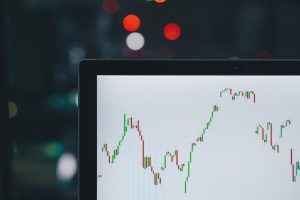Forex, or foreign exchange, is the largest financial market in the world. It involves the buying and selling of currencies, and its value is determined by supply and demand. As with any market, forex experiences highs and lows, and when it hits new lows, it can have significant effects on traders and the global economy.
When forex hits new lows, it means that the value of a particular currency has decreased compared to other currencies. For example, if the US dollar hits a new low against the euro, it means that the value of the dollar has decreased in relation to the euro.
One of the primary effects of forex hitting new lows is that it can lead to currency devaluation. Currency devaluation is when a country deliberately lowers the value of its currency to make its exports more competitive in the global market. This can lead to a boost in the country’s economy as it becomes cheaper for other countries to buy its exports. However, it can also lead to inflation as the cost of imports increases.
Another effect of forex hitting new lows is that it can lead to a decrease in foreign investment. When a currency is seen as weak, investors may be hesitant to invest in a country, as they fear that their investments will lose value. This can lead to a decrease in foreign direct investment, which can have a negative impact on a country’s economy.
Forex hitting new lows can also lead to increased volatility in the market. Traders may panic and sell off their assets, causing a sharp drop in the value of a particular currency. This can lead to a domino effect as other traders follow suit, causing the currency to spiral further downwards.
However, forex hitting new lows can also present opportunities for traders. When a currency is undervalued, traders can buy it at a lower price and then sell it when its value increases. This can lead to significant profits for traders who are able to accurately predict market trends.
In response to forex hitting new lows, central banks may intervene in the market to stabilize the currency. This can involve buying or selling the currency to influence its value. Central banks may also adjust interest rates to make the currency more attractive to investors.
In conclusion, when forex hits new lows, it can have significant effects on traders and the global economy. It can lead to currency devaluation, a decrease in foreign investment, increased volatility in the market, and opportunities for traders. Central banks may intervene in the market to stabilize the currency and prevent further economic damage. As with any market, it is important for traders to stay informed and adapt to changing market conditions to make informed investment decisions.





